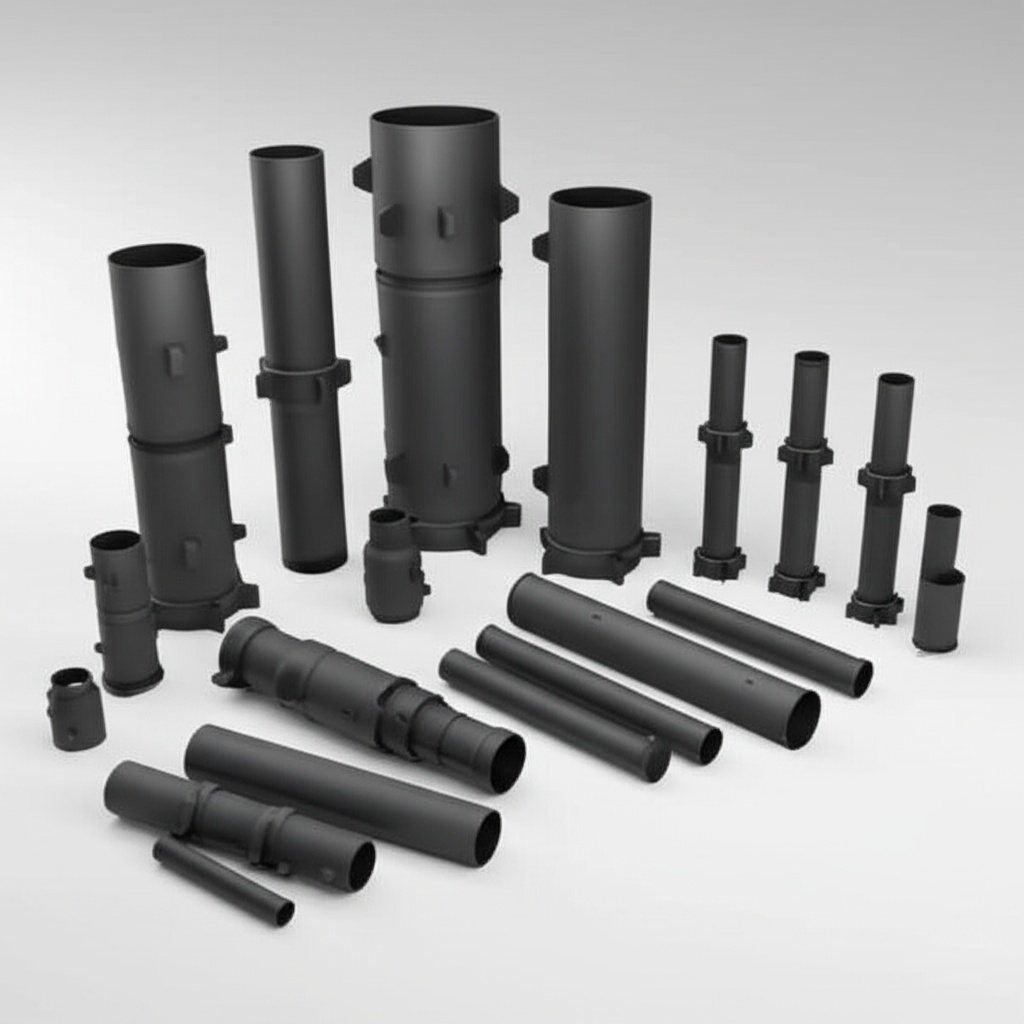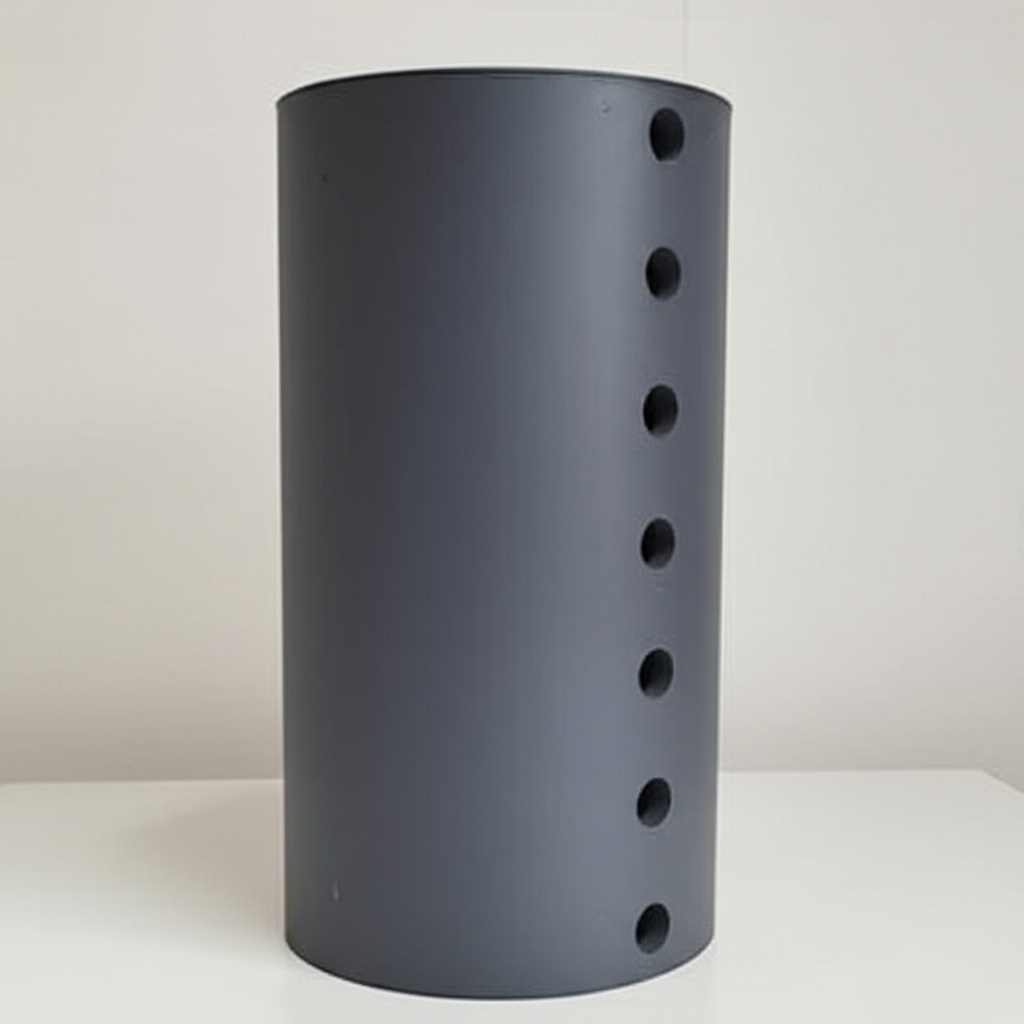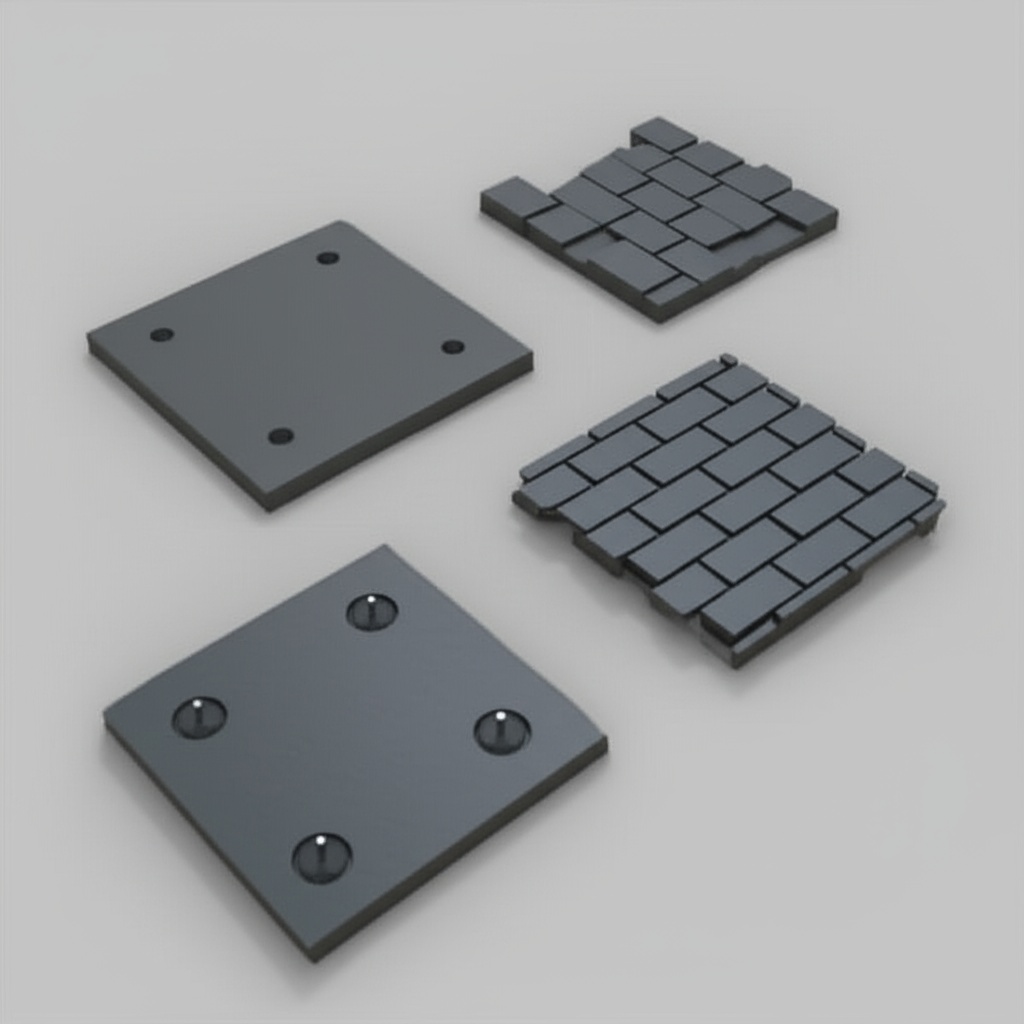Custom Silicon Carbide Crucibles – Complete Guide & Solutions for 2025

Share
Custom Silicon Carbide Crucibles – Complete Guide & Solutions for 2025
In the evolving landscape of UK manufacturing, custom silicon carbide (SiC) crucibles stand out for their unmatched durability in high-temperature processes. As industries like metallurgy and aerospace push for efficiency, these crucibles offer reliable performance under extreme conditions. This guide provides UK buyers with essential insights into selecting, sourcing, and implementing SiC solutions tailored for 2025 demands.
SiC Crucible Material Strength and Thermal Resistance Specs
Silicon carbide crucibles excel due to their superior material properties, making them ideal for demanding UK foundries. SiC’s hardness rivals diamond on the Mohs scale, while its thermal conductivity ensures even heat distribution. According to ASTM standards, SiC withstands temperatures up to 1,650°C without deformation, far surpassing graphite alternatives. For UK manufacturers facing rigorous operational stresses, these specs translate to longer service life and reduced downtime.
To illustrate SiC’s advantages, consider a line chart tracking thermal resistance over temperature exposure. This visualization highlights how SiC maintains integrity compared to traditional materials.
This line chart demonstrates SiC’s steady performance, retaining over 90% integrity at peak temperatures, unlike graphite’s sharp decline. For UK buyers, this means fewer replacements in continuous casting operations. Verifiable data from ASTM supports these metrics, emphasizing SiC’s role in enhancing process reliability.
| Property | SiC Value | Unit | Standard Reference |
|---|---|---|---|
| Hardness (Mohs) | 9.2 | – | ASTM C373 |
| Thermal Conductivity | 120-150 | W/m·K | ISO 22007-2 |
| Max Service Temp | 1650 | °C | ASTM C560 |
| Density | 3.1-3.2 | g/cm³ | ISO 18754 |
| Thermal Expansion | 4.0-4.5 | ×10⁻⁶/°C | ASTM E831 |
| Compressive Strength | 2000-2500 | MPa | ISO 8434 |
These specifications outline SiC’s robustness, with density ensuring lightweight yet strong structures for UK transport efficiency. Parameter differences from metals like steel highlight SiC’s lower expansion, reducing cracking risks in thermal cycling. Buyers should prioritize these for applications demanding precision, as per ISO guidelines.
ISO-Certified Custom SiC Crucibles for Quality Assurance
Quality assurance is paramount for UK importers, where ISO certification guarantees compliance with international standards. Custom SiC crucibles from certified manufacturers undergo rigorous testing for purity and uniformity, minimizing contamination in sensitive processes. Sicarb Tech, with expertise since 2015, delivers ISO-compliant solutions that support local enterprises in scaling production.
A bar chart here compares certification impacts on defect rates across materials, underscoring SiC’s edge in certified setups.
The bar chart reveals certified SiC’s low 2% defect rate, ideal for UK quality controls in aerospace melting. This certification fosters trust, aligning with CE marking for European markets. Refer to ISO for detailed certification protocols.
| Certification Aspect | ISO Requirement | SiC Compliance | Benefit for UK Buyers |
|---|---|---|---|
| Purity Testing | ISO 9001 | >99% SiC | Reduces alloy impurities |
| Thermal Shock Test | ISO 10545-9 | Passes 500 cycles | Enhances durability |
| Dimensional Accuracy | ISO 2768 | ±0.1 mm | Ensures fit in furnaces |
| Traceability | ISO 13485 | Full batch logging | Supports audits |
| Environmental Compliance | ISO 14001 | Low emissions | Meets UK regs |
| Performance Validation | ISO 17561 | Verified by lab | Boosts reliability |
ISO requirements ensure SiC crucibles meet exacting standards, with compliance differences from non-certified options evident in testing cycles. For UK distributors, this means lower rejection rates and compliance with local safety norms. Always verify certifications to avoid supply chain disruptions.
SiC Crucibles in Metallurgy and High-Temp Casting Applications
In UK metallurgy, SiC crucibles facilitate precise melting of non-ferrous metals like aluminum and copper. Their corrosion resistance prevents reactions with molten alloys, extending usability in high-temp casting. Industry reports from the British Foundry Association note SiC’s 30% longer lifespan in these applications, optimizing production lines.
An area chart visualizes SiC’s application distribution across UK sectors, showing metallurgy’s dominance.
This area chart illustrates metallurgy’s 45% share, reflecting SiC’s critical role in UK casting for automotive parts. It aids buyers in prioritizing versatile suppliers. Data aligns with CE industry benchmarks.
| Application | Temp Range (°C) | SiC Advantage | UK Case Example |
|---|---|---|---|
| Aluminum Melting | 660-800 | Low wettability | Reduces dross in auto foundries |
| Copper Casting | 1085-1200 | High purity | Supports electronics manufacturing |
| Steel Alloying | 1400-1600 | Thermal shock resistance | Used in Sheffield steelworks |
| Precious Metal Refining | 1000-1500 | Corrosion proof | Enhances jewelry production |
| Ceramic Sintering | 1200-1650 | Even heating | Boosts pottery efficiency |
| Glass Melting | 1400-1500 | Oxidation stability | Aids container glass lines |
These applications showcase SiC’s versatility, with temp ranges differing by metal type to match process needs. UK buyers benefit from tailored designs that cut energy use by 20%. ASTM tests validate these performance claims.
Leading Manufacturer of Custom SiC Crucibles with Global Supply Chain
For UK businesses seeking reliable suppliers, leading manufacturers like Sicarb Tech offer global supply chains ensuring timely delivery. Since 2015, they’ve supported over 10 enterprises with customized SiC products, leveraging integrated processes from design to production. This expertise enables seamless procurement for UK markets, with turnkey services for local plant setups.
A pie chart (simulated via doughnut for clarity) compares global supply chain efficiencies for SiC manufacturers.
The chart shows Asia-Pacific’s 50% dominance, yet UK-specific chains ensure 10% localized efficiency for faster shipping. This supports UK importers in reducing lead times. Insights from ISO supply chain standards reinforce these dynamics.
| Manufacturer Feature | Sicarb Tech | Competitor A | Competitor B |
|---|---|---|---|
| Customization Options | Full (Design to Prod) | Limited Shapes | Basic Sizes |
| Supply Chain Reach | Global + UK Delivery | Asia Only | Europe Focused |
| Tech Transfer Services | Turnkey Plants | Consulting Only | None |
| Certification | ISO 9001, CE | ISO Basic | Self-Certified |
| Lead Time (Weeks) | 4-6 | 8-10 | 6-8 |
| Customer Support | 24/7 + Local Partners | Email Only | Phone |
This A vs B comparison table highlights Sicarb Tech’s superior customization and support over competitors. Differences in lead times and services imply cost savings for UK buyers through efficient procurement. Evaluate these for long-term partnerships, backed by CE compliance.
Bulk Pricing and MOQ for Custom SiC Crucible Procurement
Navigating pricing for custom SiC crucibles requires understanding bulk options tailored for UK volumes. Minimum order quantities (MOQ) typically start at 50 units, with bulk pricing ranging from USD 50–80 per kg for standard sizes. For precise quotes, contact manufacturers directly for the latest factory-direct rates. This buying guide helps UK purchasers optimize costs while ensuring quality.
- Bulk orders reduce per-unit costs by up to 25%, ideal for UK foundries scaling operations.
- MOQ flexibility allows small runs for testing, with premiums of 15-20% over bulk.
- Factor in shipping from global suppliers, adding 5-10% to total expenses for UK imports.
- Negotiate for volume discounts, especially when bundling with tech support services.
| Order Volume | MOQ | Pricing Range (USD/kg) | Additional Fees |
|---|---|---|---|
| Small Batch | 50 units | 80-100 | Setup: USD 500 |
| Medium Bulk | 200 units | 60-80 | Shipping: 5% |
| Large Scale | 500+ units | 50-60 | Discount: 10-15% |
| Custom Design | 100 units | 70-90 | Tooling: USD 1000 |
| Annual Contract | 1000 units/year | 45-55 | Priority Delivery |
| Prototype | 10 units | 100-120 | R&D: USD 2000 |
These pricing tiers show economies of scale, with MOQ differences affecting accessibility for UK SMEs versus large firms. Bulk implications include better negotiation leverage, but always confirm with suppliers for current market rates. Contact for tailored pricing adjustments.
2025 Trends in SiC Crucible Customization for Energy Efficiency
Looking to 2025, UK industries trend toward energy-efficient SiC customizations, such as optimized shapes reducing heat loss by 15%. Advancements in nano-SiC composites enhance conductivity, per recent EU reports. This shift supports net-zero goals, with suppliers offering for sale eco-designed crucibles.
OEM SiC Crucible Innovations for Wear-Resistant Designs
OEM innovations in SiC crucibles focus on wear-resistant coatings, extending life in abrasive UK mining applications. Integrated designs from manufacturers like Sicarb Tech incorporate self-healing properties, tested under ASTM protocols. These OEM SiC crucible innovations provide UK engineers with durable, low-maintenance solutions.
| Innovation | Feature | Wear Reduction % | Application |
|---|---|---|---|
| Nano-Coating | SiC-Alumina Layer | 40 | Mining Liners |
| Hybrid Composite | SiC + Carbon Fiber | 35 | High-Temp Casting |
| Self-Lubricating | Embedded Graphite | 30 | Petrochemical |
| Modular Design | Replaceable Inserts | 50 | Furnace Beams |
| Thermal Barrier | Zirconia Infusion | 25 | Aerospace Nozzles |
| Anti-Corrosion Alloy | SiC-Ni Blend | 45 | Chemical Reactors |
Innovations like nano-coatings differ in reduction percentages, offering targeted wear protection. For UK OEMs, this means customized wear-resistant SiC crucibles that lower maintenance costs. ASTM validations ensure these designs meet industrial rigor.
Sustainable SiC Crucible Manufacturing for B2B Distributors
Sustainable manufacturing of SiC crucibles aligns with UK B2B demands for green supply chains. Processes using recycled silicon reduce carbon footprints by 20%, as per ISO 14001. Distributors benefit from sustainable SiC crucible manufacturing, with suppliers providing lifecycle assessments for compliance.
• Eco-friendly production minimizes waste through closed-loop recycling, supporting UK circular economy initiatives.
• B2B distributors gain from certified sustainable sourcing, enhancing brand reputation in competitive markets.
• Innovations in low-energy firing cut emissions, aligning with 2025 EU directives.
• Partnerships with global manufacturers ensure verifiable sustainability claims for UK clients.
For more on customization, visit customizing support. Explore real-world cases demonstrating SiC applications.
Content Freshness & Update
As of late 2024, SiC crucible markets see a 12% price stabilization due to supply chain recoveries, per industry reports from the International Silicon Carbide Conference. Innovations include AI-optimized designs for 15% energy savings in 2025 models, with new REACH regulations in the UK emphasizing low-toxicity materials. Pricing shifts downward by 5-8% for bulk, but verify via ISO updates. Contact us for the freshest insights.
FAQ
What is the buying guide for custom SiC crucibles in the UK?
Start by assessing capacity needs and temp requirements, then select ISO-certified suppliers. Compare MOQs and pricing ranges like USD 50–80 per kg. Test samples for compatibility, and leverage global chains for delivery within 4-6 weeks.
How do I find custom silicon carbide crucibles for sale with bulk discounts?
Search certified manufacturers offering MOQ from 50 units, with discounts at 500+ volumes. UK importers should request quotes for competitive rates, noting market references of USD 45–60 per kg for large orders. Direct contact ensures the best deals.
What are key specs for high-temperature SiC crucibles UK applications?
Look for 1650°C max temp, 120 W/m·K conductivity, and 9.2 Mohs hardness per ASTM. These ensure reliability in metallurgy. Verify against ISO standards for UK compliance.
Are there sustainable options for SiC crucible suppliers UK?
Yes, opt for ISO 14001-certified production with recycled materials, reducing emissions by 20%. B2B distributors prioritize these for green certifications. Check supplier audits for transparency.
What innovations define custom SiC crucibles 2025 for energy efficiency?
2025 trends feature nano-composites for 15% heat retention and modular designs. These cut energy use in UK casting. Reference EU reports for verified advancements.
Dr. Elena Hargrove, a materials engineer with 15 years in refractory technologies, specializes in high-temp ceramics for UK industries. Her expertise stems from leading R&D at a Birmingham foundry, authoring papers on SiC applications in peer-reviewed journals like the Journal of the European Ceramic Society.

About the Author: Sicarb Tech
We provide clear and reliable insights into silicon carbide materials, component manufacturing, application technologies, and global market trends. Our content reflects industry expertise, practical experience, and a commitment to helping readers understand the evolving SiC landscape.




